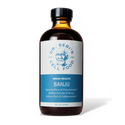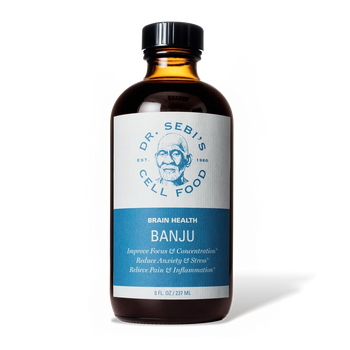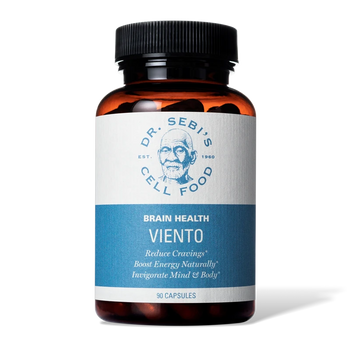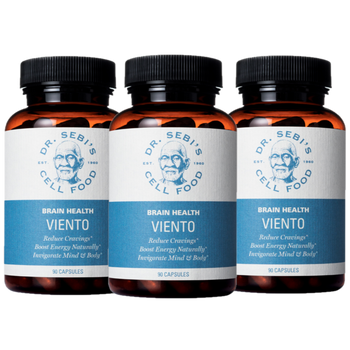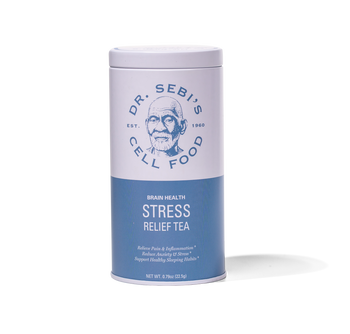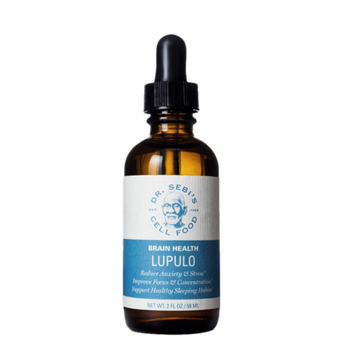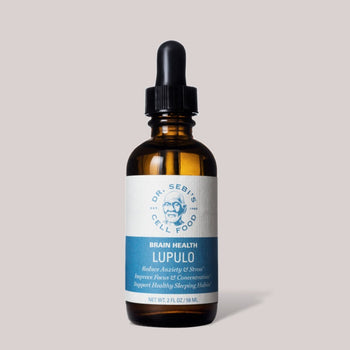Stress is one of the most common challenges of modern life. From work demands to constant notifications, the nervous system is frequently on high alert. While the body is designed to handle short bursts of stress, chronic exposure drains energy, disrupts hormones, and weakens immunity. Over time, it leaves us fatigued, anxious, and more vulnerable to illness.
Food is one of the most powerful tools we have to regulate the nervous system. The right nutrition can lower inflammation, replenish minerals lost to stress, and restore balance to both body and mind. In particular, alkaline foods—those that support a balanced pH and natural cellular function—help calm the nervous system and provide resilience against stress.
We'll explore how stress affects the body, why alkaline foods are uniquely supportive, and which foods and herbs from Dr. Sebi’s Nutritional Guide can be used to nourish the nervous system naturally.
How Stress Impacts the Nervous System
The nervous system is designed to maintain balance between two states:
-
Sympathetic mode: the “fight-or-flight” response that prepares us to face challenges.
-
Parasympathetic mode: the “rest-and-digest” state where healing and restoration occur.
When stress becomes chronic, the sympathetic nervous system dominates. Adrenal glands overproduce cortisol, blood pressure rises, and digestion slows. The body burns through minerals like magnesium and potassium more quickly, leaving cells depleted. Sleep becomes shallow, mood is unstable, and fatigue sets in.
The key to restoring balance lies in calming the nervous system—bringing the body back into parasympathetic mode. This is where alkaline foods play a unique role.
Why Alkaline Foods Support Stress Relief
Alkaline foods are natural, mineral-rich, and unprocessed. Unlike acidic foods that can increase inflammation, alkaline foods help restore cellular balance. They provide essential nutrients that counteract the physical toll of stress:
-
Magnesium: relaxes muscles, supports neurotransmitters, and lowers cortisol.
-
Potassium: helps regulate blood pressure and nerve function.
-
Calcium: stabilizes mood and aids in nerve signaling.
-
Antioxidants: reduce oxidative stress caused by chronic tension.
By choosing foods from the approved alkaline list, we avoid processed, hybrid, or inflammatory ingredients that further burden the nervous system.
Alkaline Foods for Nervous System Balance
1. Leafy Greens
Greens are mineral powerhouses that replenish nutrients depleted by stress.
-
Kale: Rich in magnesium and antioxidants, it helps relax blood vessels and ease tension.
-
Dandelion greens: Detoxifying and mineral-dense, they support liver health, which is often compromised by stress.
-
Amaranth greens (Callaloo): Provide iron and calcium, supporting cellular resilience.
-
Watercress and wild arugula: Natural anti-inflammatory foods that refresh and calm the system.

2. Fruits for Calm and Energy
Fruits hydrate, energize, and deliver antioxidants that counteract stress-induced free radicals.
-
Berries (all varieties, except cranberries): Support brain function and reduce oxidative stress.
-
Figs and dates: Natural sources of magnesium and potassium, soothing for nerves and muscles.
-
Grapes (seeded): Rich in polyphenols that protect the brain and cardiovascular system.
-
Papaya, mango, and melons (seeded): Hydrating and enzyme-rich, supporting digestion and overall vitality.
-
Limes (key limes with seeds): Cleanse and alkalize the system, helping balance stress-related acidity.
3. Nerves and Calming Herbs
Herbs have long been used to soothe the nervous system. Several approved herbs on the Nutritional Guide are especially effective:
-
Chamomile: A classic nervine herb, reduces anxiety and promotes restful sleep, and it even provides digestive support.
-
Tila (Linden flower): Traditionally used to calm the heart, ease nervous tension, and support relaxation.
-
Raspberry leaf: Gentle herb that supports the nervous and reproductive systems, especially beneficial for the womb.
-
Burdock: Cleanses the blood and supports steady energy, preventing stress-induced crashes.
-
Ginger: Stimulates circulation and helps the body adapt to stress more effectively.
4. Seeds and Nuts
Stress depletes minerals, but nuts and seeds restore them.
-
Walnuts: Rich in omega fatty acids, they nourish the brain and stabilize mood.
-
Hemp seeds: Provide protein and magnesium for steady energy and calm.
-
Brazil nuts: High in selenium, a mineral linked to improved mood and reduced anxiety.
-
Raw sesame seeds or tahini: Calcium-rich, supporting nerve and muscle function.
5. Whole Ancient Grains
Complex carbohydrates in alkaline grains provide steady energy and help regulate serotonin, the “feel-good” neurotransmitter.
-
Quinoa: Complete protein and mineral-rich, supports balanced energy.
-
Fonio and tef: Easy to digest, grounding, and nutrient-dense.
-
Spelt and kamut: Provide sustained energy without spikes in blood sugar.
-
Wild rice: Strengthens the nervous system with antioxidants and minerals.
6. Supportive Oils
Healthy fats are essential for brain health and stress regulation.
-
Avocado oil and olive oil: Support cardiovascular health, protecting against stress-induced strain.
-
Hempseed oil: Supplies omega-3 fatty acids, calming inflammation in the brain and nerves.
-
Coconut oil: Provides stable energy for the brain without overstimulation.
Simple Stress-Relieving Rituals with Alkaline Foods
-
Morning mineral water: Start the day with spring water infused with key lime juice and a pinch of pure sea salt to restore electrolytes.
-
Soothing herbal tea: Brew chamomile and tila in the evening to calm the nervous system before bed.
-
Stress-balancing smoothie: Blend kale, seeded grapes, figs, and hemp seeds for a calming, nutrient-packed snack.
-
Nourishing grain bowl: Prepare quinoa or wild rice with sautéed zucchini, dandelion greens, mushrooms, and avocado oil.
-
Snack for the nerves: Walnuts and dates together provide a grounding combination of minerals and natural sweetness.
The Science of Alkaline Stress Relief
Research supports the connection between mineral-rich foods and stress resilience. Magnesium, potassium, and omega-3 fatty acids all influence neurotransmitters like serotonin and GABA, which regulate mood and relaxation. Antioxidants from berries and leafy greens reduce oxidative stress in the brain, protecting cognitive function.
Herbs such as chamomile and linden have been studied for their sedative and anxiolytic effects, often working as effectively as mild pharmaceuticals but without side effects.
These findings confirm that food isn’t just fuel—it is a form of medicine for the nervous system.
Frequently Asked Questions
Why are alkaline foods better for stress relief?
They supply minerals and antioxidants while avoiding acidic foods that increase inflammation and nervous system strain.
How quickly can food reduce stress?
Some effects, like calming teas, can be felt within minutes. Others, like mineral replenishment, work cumulatively over days and weeks.
Can I use these foods daily?
Yes. The Nutritional Guide emphasizes consistent use of these alkaline foods for best results
What should I avoid if I want to manage stress?
Avoid processed foods, hybrid grains, seedless fruits, dairy, animal products, alcohol, and refined sugars—not included in the Nutritional Guide
Conclusion
Stress may be unavoidable, but its effects don’t have to dominate our lives. By focusing on alkaline foods and herbs, we can replenish depleted minerals, calm the nervous system, and restore inner balance. From leafy greens and seeded fruits to herbal teas and ancient grains, the foods on Dr. Sebi’s Nutritional Guide provides natural tools for resilience.
When we nourish our cells with alkaline foods, we give the nervous system the support it needs to shift out of fight-or-flight and back into rest-and-digest. The result is more energy, greater clarity, improved mood, and a body that is better equipped to meet the challenges of life with calm strength.
Alkaline eating is not just a diet—it is a pathway to peace of mind, cellular vitality, and holistic healing.

